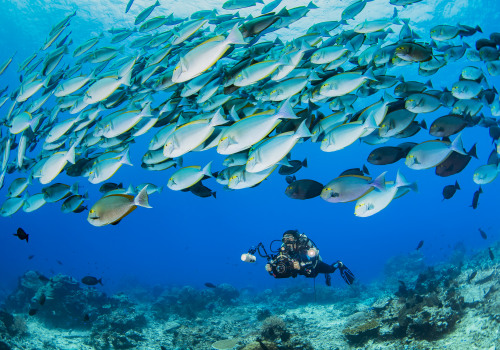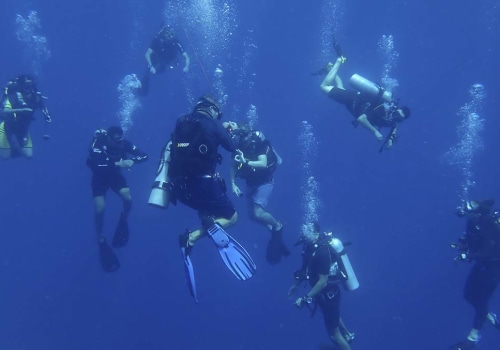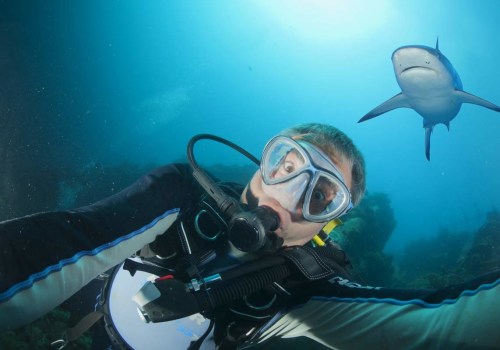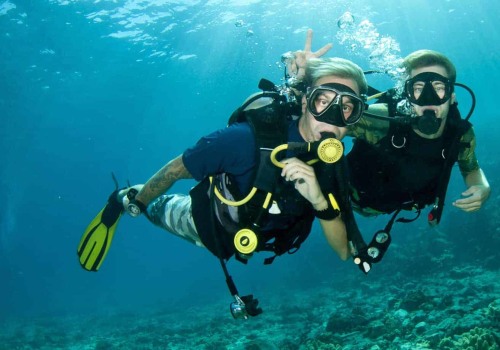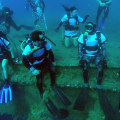Scuba diving is an exciting and thrilling experience, but it can also be dangerous if you don't follow the safety rules. Without a doubt, the most important safety rule for scuba diving is to never hold your breath underwater. Fluctuating air pressure in your lungs can break your lung walls if you hold your breath at the depths where divers go. Our beginner diving courses teach us about the causes and results of diving accidents, and how to avoid dangerous situations and emergency procedures for dealing with them if they arise.
With enough training and preparation, we can easily avoid most diving accidents. However, every diver should have at least a basic understanding of what to do if things go wrong. Obesity, alcohol and smoking, and tiredness increase a person's susceptibility to decompression sickness, while 25 percent of diver deaths are due to pre-existing illnesses that should have excluded the person from diving in the first place. Always be honest in medical questionnaires and seek advice from a doctor to find out if you can dive or not. Be aware of temporary physical fitness impediments: While a cold may not be dangerous on land, it can cause serious damage underwater.
Recover completely from any illness or surgery before returning to the water. Diving within your limits differs from diving within your training. Personal boundaries change from day to day and from year to year. You may be qualified to dive at 100 feet, but if you haven't dived in a few years, jumping straight into a dive at that depth probably isn't the best plan. Or, if you're not in your usual physical condition because you haven't been exercising for a few weeks, you might not be able to dive on dry land with your local club until you're yourself again. You can always set a goal of overcoming your old limits, but as life changes, respect your evolving limits.
The deeper you go, the higher the water pressure and the volume of the lungs decreases. When you ascend, your lungs expand and that's when the air in your lungs becomes unsafe. The most important rule when diving is not to hold your breath, as doing so can result in serious injury. The air in your lungs will expand during the ascent and contract during the descent, so as long as you breathe continuously, this won't be a problem as the excess air escapes. Scuba diving is a strange and exciting experience because you're doing something technically impossible: breathing underwater. It's important that you NEVER hold your breath: breathe normally at all times while diving.
Holding your breath can cause an air embolism (in which an air bubble enters the bloodstream), which is a serious and potentially fatal injury. Learning to use your friend's alternative air source, performing a controlled emergency swim ascent (CESA), disconnecting the hose from the pressure inflator, removing the mask, performing CPR, and administering emergency oxygen are some of the vital diving safety skills you must learn and master. If you use common sense and everything you have learned in your diving classes, you can safely enjoy this exciting sport and minimize the risks of injury and death. Always keep an eye on what's above you as accidents happen. We hate to curb your enthusiasm right after a dive, but one of the general rules of diving safety includes alcohol. Fortunately, these hazards can almost always be prevented as long as you follow some safety rules vital to diving. Make sure you are covered both above and below water with insurance that explicitly states that diving activities are included.
It's also important to avoid going below 130 feet (40 m): this is the limit for recreational diving and so is it for diving insurance. From making a safety stop to controlling your pace of ascent, these are the most basic diving safety measures. Below are ten essential rules that will reduce the risk of accidents and make your diving as fun and safe as possible:
- Never hold your breath
- Climb slowly after a dive
- Invest in good diving insurance
- Even out your ears
- Be aware of what's above you
- Avoid alcohol before or after diving
- Follow all safety rules
- Get adequate rest before diving
- Don't dive beyond 130 feet (40 m)
- Make sure all equipment is secure
Don't leave your diving equipment lying in a pile on the deck of the boat when you return from diving, as it's not good for the equipment and is dangerous for you and for others who might stumble upon it. If you use common sense and everything you have learned in your diving classes, you can safely enjoy this exciting sport and minimize the risks of injury and death. Don't rely solely on this information; seek professional advice on all matters related to diving safety.
